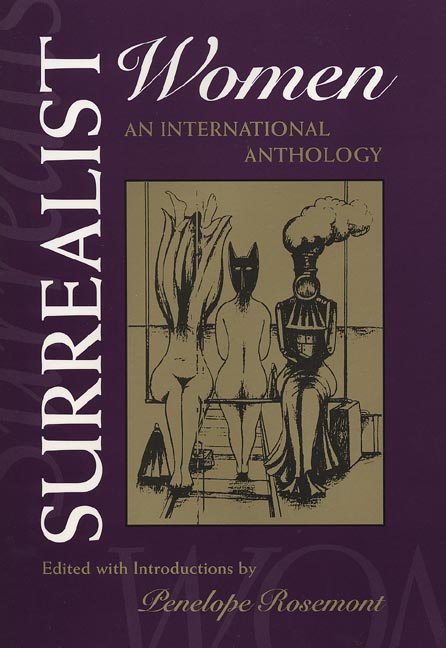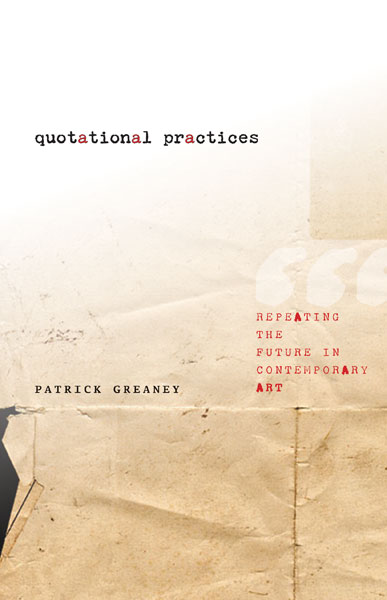Museum Highlights: The Writings of Andrea Fraser (2005)
Filed under book | Tags: · aesthetics, appropriation, art, art criticism, autonomy, capital, collecting, conceptual art, curating, institutional critique, museum, performance, performance art

“Andrea Fraser’s work, writes Pierre Bourdieu in his foreword to Museum Highlights, is able to ‘trigger a social mechanism, a sort of machine infernale whose operation causes the hidden truth of social reality to reveal itself.’ It often does this by incorporating and inhabiting the social role it sets out to critique—as in a performance piece in which she leads a tour as a museum docent and describes the men’s room in the same elevated language that she uses to describe seventeenth-century Dutch paintings. Influenced by the interdisciplinarity of postmodernism, Fraser’s interventionist art draws on four primary artistic and intellectual frameworks—institutional critique, with its site-specific examination of cultural context; performance; feminism, with its investigation of identity formation; and Bourdieu’s reflexive sociology. Fraser’s writings form an integral part of her artistic practice, and this collection of texts written between 1985 and 2003—including the performance script for the docent’s tour that gives the book its title—both documents and represents her work.
The writings in Museum Highlights are arranged to reflect different aspects of Fraser’s artistic practice. They include essays that trace the development of critical ‘artistic practice’ as cultural resistance; performance scripts that explore art institutions and the public sphere; and texts that explore the ambivalent relationship of art to the economic and political interests of its time. The final piece, ‘Isn’t This a Wonderful Place? (A Tour of a Tour of the Guggenheim Bilbao),’ reflects on the role of museums in an era of globalization. Among the book’s 30 illustrations are stills from performance pieces, some never before published.”
Edited by Alexander Alberro
Publisher MIT Press, 2005
ISBN 0262062445, 9780262062442
xxxvii+291 pages
Reviews: Kirsi Peltomaki (Afterimage, 2005), Melissa Gronlund (Frieze, 2005), Louis Byrne (Art Book, 2007), N.A. Hayes (PopMatters, 2008).
PDF (104 MB, no OCR)
Comment (0)Penelope Rosemont (ed.): Surrealist Women: An International Anthology (1998)
Filed under book | Tags: · art criticism, surrealism, women

“Beginning in Paris in the 1920s, women poets, essayists, painters, and artists in other media have actively collaborated in defining and refining surrealism’s basic project—achieving a higher, open, and dynamic consciousness, from which no aspect of the real or the imaginary is rejected. Indeed, few artistic or social movements can boast as many women forebears, founders, and participants—perhaps only feminism itself. Yet outside the movement, women’s contributions to surrealism have been largely ignored or simply unknown.
This anthology, the first of its kind in any language, displays the range and significance of women’s contributions to surrealism. Letting surrealist women speak for themselves, Penelope Rosemont has assembled nearly three hundred texts by ninety-six women from twenty-eight countries. She opens the book with a succinct summary of surrealism’s basic aims and principles, followed by a discussion of the place of gender in the movement’s origins. She then organizes the book into historical periods ranging from the 1920s to the present, with introductions that describe trends in the movement during each period. Rosemont also prefaces each surrealist’s work with a brief biographical statement.”
Introductions by Penelope Rosemont
First published by Athlone Press, London, 1998
Publisher University of Texas Press, Austin, 1998
Surrealist Revolution series
ISBN 029277088X 9780292770881
lvii+516 pages
Review: Bertha Husband (ATC, 1999).
PDF (19 MB, updated on 2017-11-21)
Comment (0)Patrick Greaney: Quotational Practices: Repeating the Future in Contemporary Art (2014)
Filed under book | Tags: · appropriation, art criticism, authorship, conceptual writing, literary criticism

“Literature and art have always depended on imitation, and in the past few decades quotation and appropriation have become dominant aesthetic practices. But critical methods have not kept pace with this development. Patrick Greaney reopens the debate about quotation and appropriation, shifting away from claims about the death of the author. In interpretations of art and literature from the 1960s to the present, Quotational Practices shows how artists and writers use quotation not to undermine authorship and originality, but to answer questions at the heart of twentieth-century philosophies of history.
Greaney argues that quotation is a technique employed by art and philosophy to build ties to the past and to possible futures. By exploring quotation’s links to gender, identity, and history, he offers new approaches to works by some of the most influential modern and contemporary artists, writers, and philosophers, including Walter Benjamin, Guy Debord, Michel Foucault, Marcel Broodthaers, Glenn Ligon, Sharon Hayes, and Vanessa Place.
Ultimately, Quotational Practices reveals innovative perspectives on canonical philosophical texts as well as art and literature in a wide range of genres and mediums—from concrete poetry and the artist’s book to performance, painting, and video art.”
Publisher University of Minnesota Press, 2014
ISBN 9780816687343, 081668734X
xiv+217 pages
Reviews: Laura Guy (Visual Studies, 2015), Adam Barbu (Rev Cult Theory, 2016).
PDF (25 MB)
Comment (0)
